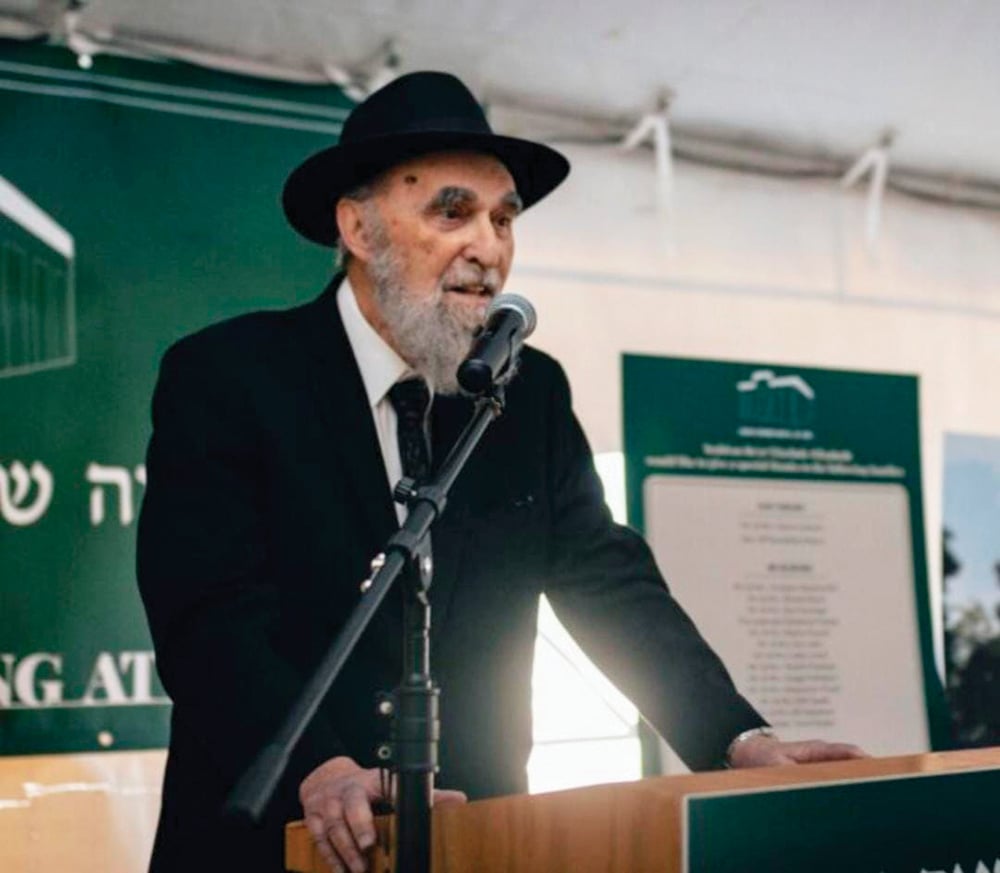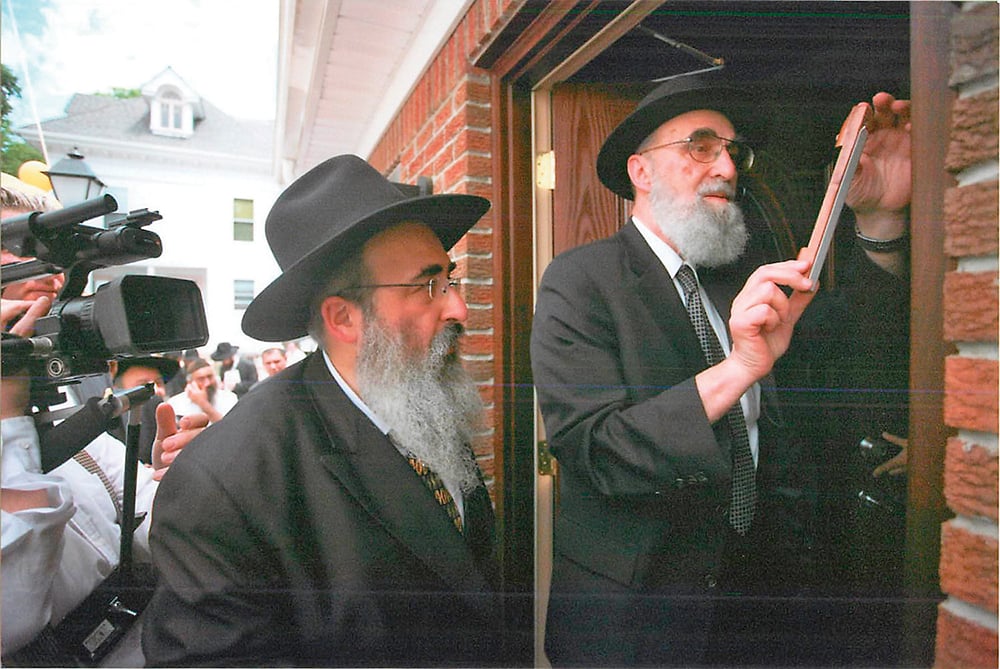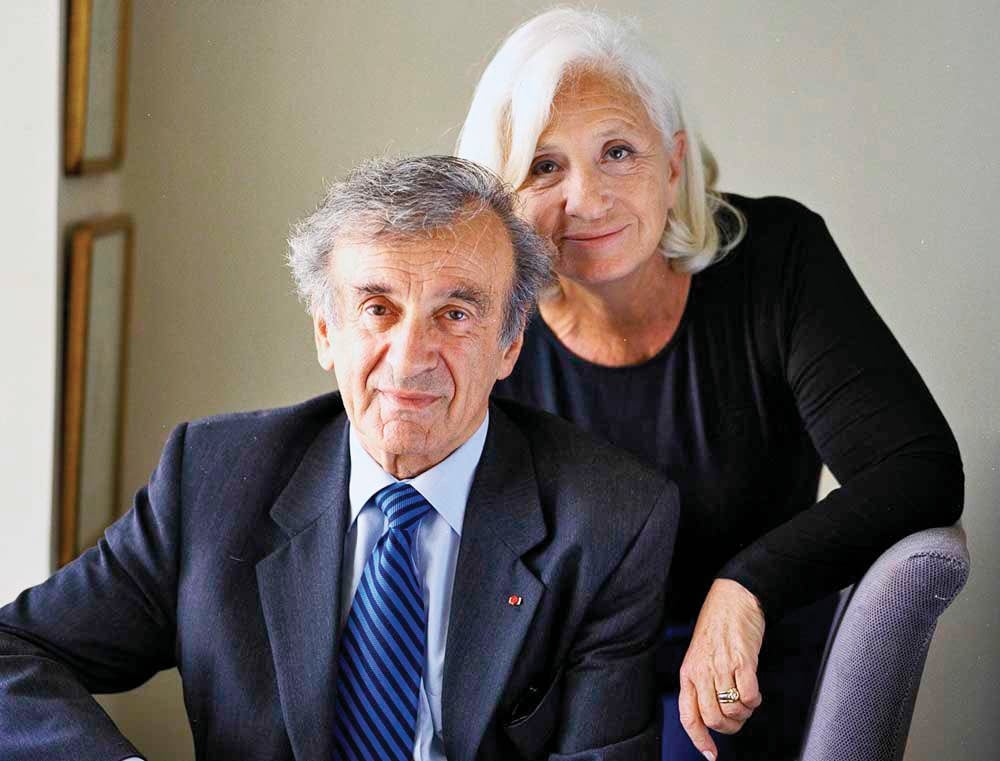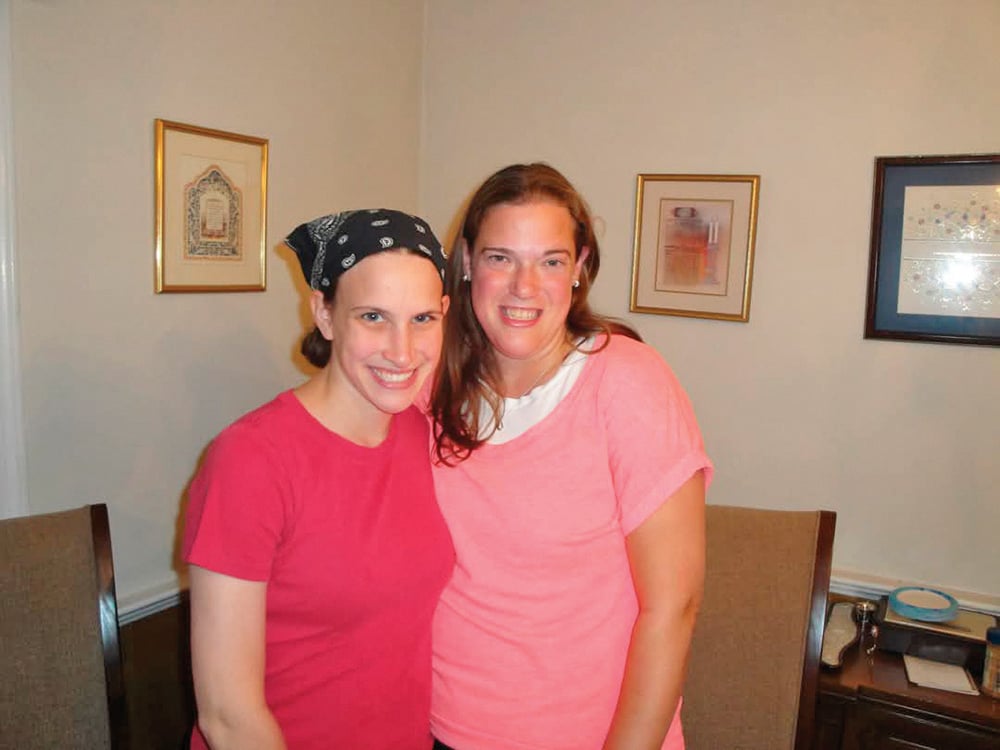From her address to the students of Bruriah, delivered on Monday morning, Feb. 3, 2025:
In the past 48 hours, our world has irrevocably changed. It is very hard to believe that he’s gone. Rav Teitz’s passing leaves an enormous void, one that can never truly be filled.
Rav Teitz was a true gadol—a giant. And when we say “giant,” we don’t mean only in Torah knowledge, but in character, in humility and in his devotion to others. His brilliance was evident in many areas. He had an exceptional mind for numbers, and his brilliance in mathematics especially was unparalleled. If you ever wanted to know on what English date Pesach would fall in 22 years, you could ask him, and he would know—the exact date. This wasn’t just about facts; it was about the depth of his understanding and his ability to make complex things seem simple. He could complete a crossword puzzle entirely in his head. He was a unique blend of the kodesh and the chol, a master in both realms. He had a broad understanding of secular knowledge, bringing a rare balance between the sacred and the worldly. And his ability to navigate both realms with ease made him unique—he was, in every sense, a bridge between worlds.
Rav Teitz’s impact on Torah learning is perhaps best exemplified in his role as a rebbe, or as a teacher. Following in his father’s footsteps, he was a pioneer in bringing Torah learning to the airwaves. For 11 years, he taught a daf hashavua Gemara shiur over the radio, continuing after his father had stopped. This was long before Meaningful Minute, long before Spotify made shiurim a popular medium. In fact, when he first began, some in the larger Jewish community thought that the radio was an inappropriate place for Torah learning. There were even calls to prohibit it. But Rav Teitz and his father, unwavering in their vision, pushed forward, eventually growing it into a phenomenon that touched the lives of countless people and became the starting place for Torah podcasts that we all know and love.
But despite his enormous accomplishments and influence, Rav Teitz remained humble — anav — in every sense of the word. I’ll never forget when I first came to know him. I tried to show him proper kavod by referring to him in the third person — saying, “How is the Rav?” or “I would like to ask the Rav a question.” And each time, without fail, he would gently respond, “Do you want to speak to my father?” That simple gesture — his willingness to downplay his own stature and redirect the conversation to his revered father — spoke volumes about his character.
There is a story that Mrs. [Yael] Kaisman shared with me that I believe beautifully illustrates Rav Teitz’s brilliance and humility. Years ago, when he was in Eretz Yisrael learning at Machon Herzog to receive his semicha, he was sent to an address in Mea Shearim to meet a holy man for a test. Rav Teitz didn’t recognize him at the time, but the man began questioning him on the Gemara he was learning. What followed was a rigorous, two-hour session, during which Rav Teitz answered each question with flawless memory, quoting Gemara after Gemara, without notes, without a sefer in front of him. For over two hours, Rav Teitz was questioned about what he had learned that day, that month, even two months prior. The man was relentless, but Rav Teitz answered with fluency, quoting entirely from memory, without a single sefer in front of him.
At the end of the interview, the man handed Rav Teitz a piece of paper, signed by Rav Yosef Shalom Elyashiv, with the words “Ra’ui l’smicha”—worthy of semicha.. Later, when asked by Mrs. Kaisman’s husband whether he still had that piece of paper, Rav Teitz answered, “Why would I still have that paper? I didn’t even know who he was at the time. I was just answering questions.” To us, however, the interview was nothing short of unbelievable. Rav Teitz had just been tested by the future gadol hador, without a single Gemara open, without any notes and with ease.
On top of that brilliance, Rav Teitz had a fantastic sense of humor. Just recently, I asked him about a school policy, and he gave me such a witty response that I’m sure it would make you all laugh — though I probably shouldn’t repeat it here. But behind that humor was something even more remarkable: a deep care and concern for every single student. Rav Teitz cared so much about your learning, your growth, your happiness. It was never about him—it was always about you. He was constantly asking about students, making sure each of you had what you needed to succeed, both in your studies and in your personal life. His dedication to your well-being was evident in everything he did.
Rav Teitz was also a product of his upbringing—a home that understood the importance of building a community school. He believed that a community should have access to Torah learning, right where they lived. Years ago, if you wanted to attend a school, you often had to travel far, sometimes across cities. But Rav Teitz and his family believed that every neighborhood, every community should have its own school. Each of you here today has benefitted from that vision, from his unwavering commitment to making Torah education accessible to all, no matter where you live.
And he also believed in you, dear students. He never asked about you based on where you were in the moment, but rather where you could go. What you could become. And he was always there for you no matter what. If you asked for help, he went above and beyond. I know this from personal experience.
And Rav Teitz’s Torah was so authentic. So brilliant. And so pure. He once taught in a shiur that Hashem gave us 613 mitzvos to keep. But of course that doesn’t apply to everyone. No one actually is commanded to keep 613 mitzvos. Some mitzvos are only for men, and some mitzvos are only for women. Some mitzvos are only for kohanim, and some mitzvos are only for Beis Din. But however many mitzvos we each have, we don’t always do what we should. And what’s worse is that we don’t always refrain from doing what we shouldn’t. We tend to not always live up to what is required of us. But the pasuk in Koheles says, “Ein tzaddik ba’aretz asher ya’aseh tov v’lo yecheta”— The world has yet to see a tzaddik who only did good and never did wrong.
We are human. We make mistakes. We are given the chance every day to do teshuva. Sometimes, we say things we regret, or we don’t live up to the standards we set for ourselves. We wish we could erase those words we said and undo the wrong that we did. And that, according to Rav Teitz, is the beauty of teshuva. The ability to return, to correct ourselves, and to strive to do better. It is this pursuit of growth that gives life its true meaning. That was the essence of his life—a constant striving toward improvement, toward serving Hashem with sincerity and devotion.
Rav Teitz’s life was a living testament to this concept. He lived with a deep commitment to Hashem, to Torah and to the Jewish people. He taught us that we are here to serve Hashem, that everything we do in this world is for that higher purpose. Without that, life lacks meaning. Rav Teitz lived every day with that sense of purpose, and through his actions, his Torah and his kindness, he inspired all of us to do the same.
May we all carry forward his legacy—of learning, of kindness, of humility and of a deep love for Torah and Hashem. May his memory continue to inspire us, guiding us in our own journeys.
Yehi zichro baruch.
Dr. Bethany Strulowitz, Ed.D is the principal at Bruriah High School and Middle School in Elizabeth.












